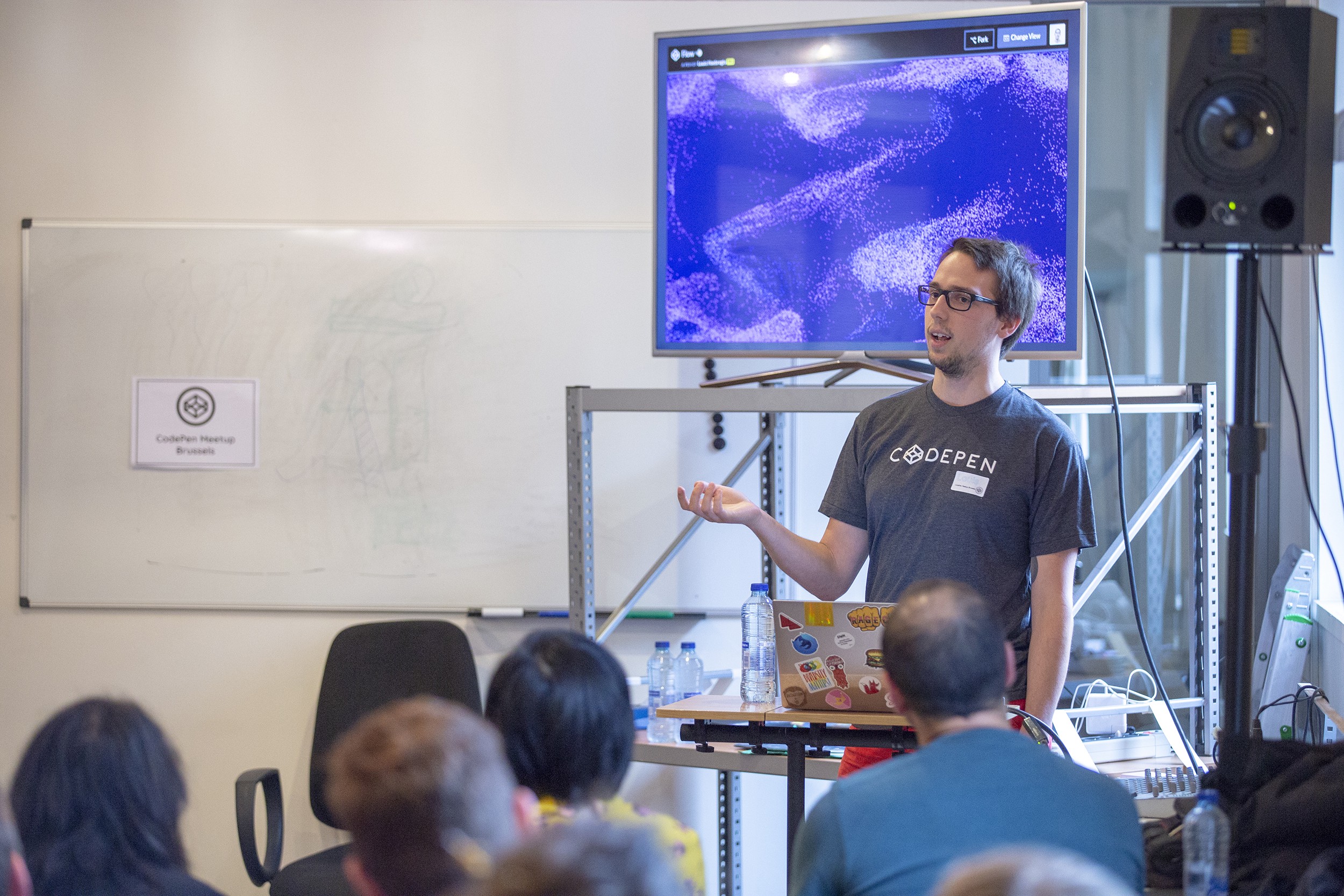
Juggling teaching and other professional activities is the challenge that Louis, front-end developer at Base Design, has chosen. Based in Brussels, he also leads courses in web development.
nexten.io met with him to find out more about his career path and what motivated him to take up teaching.
Louis: Hello team. When I was 16 in high school, I changed schools to focus on computer science. That’s where I took my first HTML and other basic code courses. I then joined the HEAJ, the Haute École Albert Jacquard, where I could deepen my knowledge in computer graphics and web development. Very quickly, I was able to put into practice my theoretical teachings, by integrating the Emakina agency, with which I collaborated for three years as a front-end developer. I then looked for new challenges to take up, and a friend helped me transition into the company where I work now — Base Design — still as a front-end developer!
Louis: Of courses! For the last five years, I’ve been lucky enough to be able to teach students at the HEAJ. I’m delighted to be back here, after all that I have been able to learn in this training, to share knowledge with students I’ve acquired through all my professional experience. You might say we’ve come full circle! I teach about 70 hours a year, usually on Fridays, in web optimization and generative design courses. I help my students work on technical projects that combine both design and code.
Louis: The online courses were really a first for me. Obviously, I had to adapt and come up with courses that would engage students. Developing group spirit, and meaningful interactions and feedback proved to be a real challenge! It’s as much for me as for them: with this distance, I have a hard time gauging their difficulties and their understanding of the course and the projects, and therefore can’t adjust as easily when necessary. Fortunately, since I’ve been teaching this subject for five years, I already know about the bugs that students usually encounter, and I can already apprehend these interactions.
Louis: The first thing I think’s important is that you have to really want to do it. You have to want to share your professional experiences with others and be ready to take on a nice challenge that will yank you out of your comfort zone. You’ll learn from your students: you have to adapt, review your courses, channel group dynamics. I think that if I had to mention only one quality worth developing, it would be patience! Depending on the audience, you have to know how to come back to the notions, reframe the course, re-explain the exercise… I had the opportunity to conduct two training sessions in companies. The experience can be very interesting, but it all depends on the audience: an enthusiastic student will always be more motivated than anyone forced to be there (an employee or even another student).
So, teaching, in my opinion, is a mix of passion, patience, and adaptation! That said, each teacher ultimately has his or her own vision of teaching, and that’s what makes for a complete program for students.
Louis: If I had to give one last piece of advice to reluctant developers, whether it’s teaching or doing side projects: it’s that “mastery doesn’t exclude learning.” Learning is never really finished: you have to develop yourself continuously, improve your skills, and be interested in what’s going on around you. Exchange, share — in short, learn. Then comes the difficulty of correctly teaching what you know to others. One can indeed be technically good, but not be able to communicate properly! My advice as a developer is to write down on paper, the technical details, bits of code, and other aspects of what developers do instinctively.
Louis: Before Covid-19 came along, my goal was to organize “Creative front-end” meetings twice a year with a friend. The initial ambition is often to bring together a whole community of enthusiasts to learn from each other. It’s a non-profit event. We’ve had the opportunity to do a few already, and we’re looking forward to doing them again as soon as possible!
Louis: I confess, last week I followed a lot of Eurovision. Generally, though, when I work, I like to listen to jazz tinged with hip hop, like DJ Okawari or Nujabes, with a definite preference for French songs!
Louis: If I had to name just three, they would be Lea Verou, Sarah Drasner, and Cassie Evans. In their own way, they have all helped me discover new things in the world of animation and web culture. I find the beauty in their illustrations very inspiring.
Louis: This may disappoint you: I work with a simple laptop running Windows! In the past, I had the opportunity to work with several screens, but I quickly realized that I worked better without frills, with my good old keyboard shortcuts. Even my desk chair dates back to my 12th birthday, a gift from my grandparents! On the other hand, when I switch to gaming mode, I have a tower in addition to my laptop to enjoy better conditions.
Louis: To improve your developer skills, don’t hesitate to do a lot of research. The web is vast, and there’s a good chance that another expert has asked the same question as you. There are online communities that allow you to share with your peers — especially on Slack and Discord. For creative developers, there’s also codepen.io, the platform that allowed me to gather several enthusiasts during my first meeting!
Blog: mamboleoo.be
Twitter: twitter.com/Mamboleoo
Instagram: instagram.com/mamboleoolab/
CodePen: codepen.io/Mamboleoo/
LinkedIn: linkedin.com/in/mamboleoo/
If you want to receive Louis’ newsletter about web animation and SVGs every month, it’s here: https://viewbox.club
